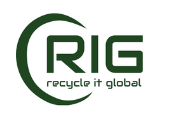THE FUTURE OF RECYCLING
Revolutionary Innovation – reducing landfill waste, 1 tonne at a time.

Protecting our natural resources for a sustainable future.
WHAT WE DO
We are focused on significantly reducing the quantity of waste materials destined for landfill or mine waste facilities across the globe, processing this waste, and returning recycled aggregates back into the market. At RIG we don’t just process waste we also identify future opportunities at a global and local level, build state-of-the-art facilities and carry out advanced research and development in the waste processing sphere.

Redefining Waste: Transforming Today for a Greener Tomorrow.
THE CHALLENGE WE SOLVE.
The global sand crisis presents a significant challenge due to the rapid depletion of sand resources driven by excessive extraction and environmental degradation. The construction, demolition, mining, and marine dredging sectors are major contributors to this issue, as they heavily rely on sand and generate substantial waste, including construction and demolition waste (C&D), trommel fines, and contaminated sediments. Effective waste management strategies are essential to mitigate environmental impacts and promote sustainable resource utilisation.
In the UK, waste markets are strictly regulated by the Environment Agency, which enforces stringent contamination levels for materials imported into treatment facilities and landfills. These regulations have led to a culture of concealment within the industry. Waste from CDEW, trommel fines, and marine dredging is often hazardous and challenging to dispose of, contributing to significant greenhouse gas emissions as it is transported across the UK due to a limited number of landfill sites.
- The high cost of disposing of non-inert materials and the geographical impracticality of available facilities often lead to illegal waste operations.
- Regulatory changes are pushing for a circular economy, with upcoming legislation making it illegal to dispose of contaminated marine dredging at sea.
- Globally, the shortage of sand is critical as it is the most exploited resource after water, with the pace of construction outstripping supply.
- Construction, Demolition & Excavation Waste (CDEW) constitutes over a third of the EU’s total waste, generating around 450 million tonnes annually.
- Recycling rates vary significantly worldwide, hindered by differing definitions among EU nations.
RIG addresses these complexities through engineering innovations, including advanced plant design and bioremediation techniques, enhancing the processing of marine dredging waste.
challenge
Our Solutions Explained
Sustainable Management of Natural Resources
CIRCULAR ECONOMY
RIG is setting the standard for processing CDEW, Mining and Marine Dredging waste with the aim to change legislation on processing globally.
Revolutionary Processing of Complex Waste Streams
Our engineers design bespoke mineral processing plants for each waste stream, with a view to optimise front end material recovery, resulting in high quality products, suitable for global infrastructure.
EXPERIENCE
Our team holds over 100 years of combined experience in the waste, aggregates, plant and logistics industry.
COST EFFECTIVE DISPOSAL
Our wash plant facilities remove the need for expensive disposal solutions for the most complex of wastes.
Advanced Bioremediation
Our Process uses fungal and bacterial bioremediation techniques to reduce contamination levels in your waste.
Contact Us

Redefining Waste: Transforming Today for a Greener Tomorrow.
Our Solution In Action
We take waste very seriously. We have streamlined our processes so that we can respond in full alignment to the Environment Agency, demonstrating industry-leading best practice. We take responsible practicable steps to access and classify all waste, prior to its acceptance on site.
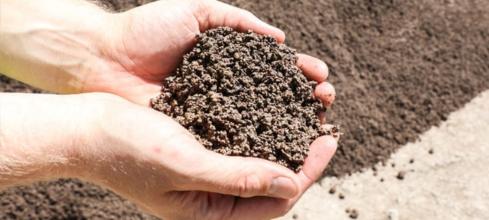

Review
Incoming material is evaluated by our Technical Team and Site Managers, making sure that the correct material is identified, recorded, can be processed correctly and falls within our permit.
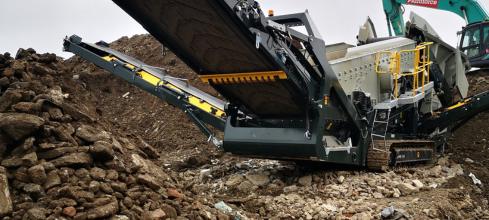

Refine
The materials are then screened, separating the material into top-end, mid-size and 40mm down material. The top-end and mid-size are then crushed into capping and subbase materials.
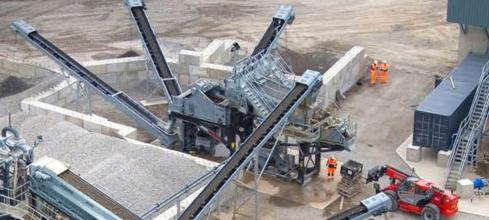

Recycle
The 40mm down material is then processed through our state of the art wash plants, removing contaminants and silts, resulting in quality, recycled aggregates.
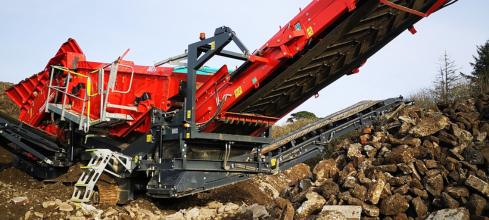

RIG
This is the RIG way. We do it right every time, to provide assurance to the global market that the material has been looked after in the right manner.
